The average age of a collision repair technician is 44, and more than 60% of the collision repair labor force is more than 40, according to Zippia.com -- meaning there is an urgent need to train the next generation to fill the industry’s growing vacancies.
In Stillwater, OK, and its surrounding communities, local body shop professionals recognized this and came together to rejuvenate the Collision Repair Technology program at Meridian Technology Center. This is the story of how they did it.
Overcoming Adversity: Jordan Short’s Journey from Technician to Instructor
Jordan Short, a seasoned professional with more than 20 years of experience in the automotive and body shop industry, found his path to teaching through unexpected circumstances. Growing up around cars in his grandfather’s mechanical shop, Short developed a deep understanding of the mechanical side, but gravitated towards customizing and souping up vehicles. His passion led him to various roles, including working at Wilkin’s Autobody Shop in Guthrie for nine years.
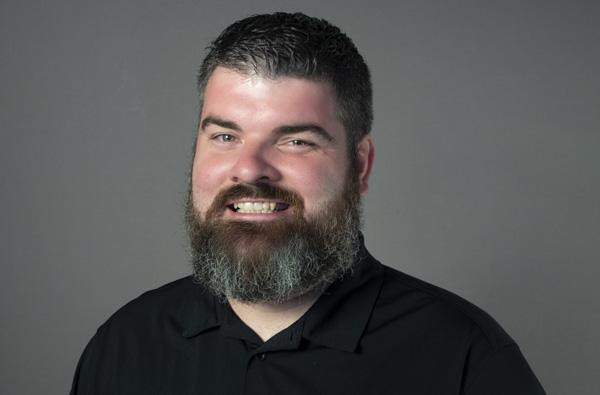 Jordan Short, collision repair technology instructor.
Jordan Short, collision repair technology instructor.
However, a work injury forced Short to slow down and consider other career options. After trying his hand at estimating and completing a degree in business management, Short found himself at a crossroads.
The collision technology program at Meridian Tech, where he had once trained, was at risk of being shuttered. The school serves portions of five counties with campuses in Stillwater and Guthrie. The program struggled with retention, partly due to the challenges of teaching hands-on skills during the COVID-19 pandemic.
Recognizing an opportunity to make a difference, Short began exploring the possibility of becoming an instructor. His fiancée, a dedicated worker at Tim’s Bodyworks, rallied support by making numerous phone calls, leading to a roundtable discussion with local high schools, adult programs and industry experts.
Revamping the Program: A Collaborative Effort
Short’s application for the instructor position was successful, and he enthusiastically took on the role. His first apprentice, Orville Roper, was initially disappointed when the program was paused, but his determination and support from the community reignited the program’s momentum.
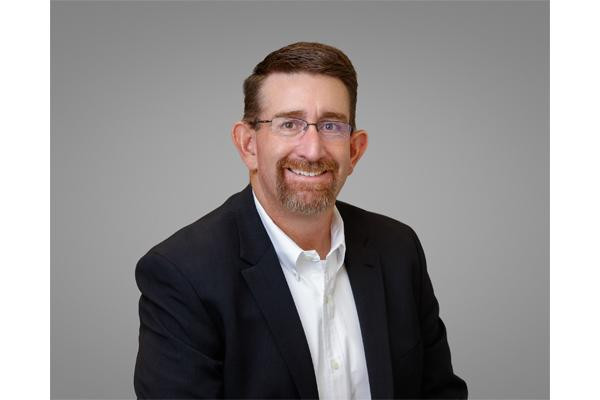 Joe Steele, director of Meridian Technology Center’s Apprenticeship Training.
Joe Steele, director of Meridian Technology Center’s Apprenticeship Training.
With 15 years of experience at Meridian and a keen understanding of the district’s needs, Joe Steele, Meridian Tech’s apprenticeship training director, The community’s input emphasized the necessity of apprenticeships, which became a core component of the revamped curriculum.
Meridian Tech organized an advisory board meeting with mentors from shops, production experts and educators, to discuss the program’s potential and how it could better serve the community. This meeting saved the program and paved the way for integrating an apprenticeship model.
Hands-On Learning: Building Skills and Confidence
Under Short’s leadership, Meridian Tech's Collision Repair Technology program now offers a comprehensive, hands-on learning experience. Shorts said there are 14 seats per session, and the school offers morning and afternoon classes for its full-time students. The school is at or over capacity and is looking at adding evening classes in the fall of 2024.
The program includes a state-of-the-art paint booth and lab, a welding area and a curriculum covering safety, static and live work. Students can work on real cars, providing them with invaluable real-world experience.
“We get to do live work, where we work on actual cars and students get real-life experience. We draw upon mistakes and problems and teach them how to solve them,” Short explained. “It’s a learning opportunity, and they learn how to fix problems in the school before going to the actual body shop.”
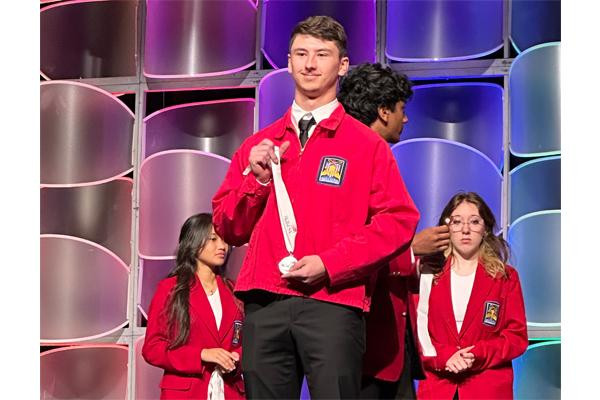 Colby Wilder placed second in refinishing at the recent Skills USA Oklahoma State competition.
Colby Wilder placed second in refinishing at the recent Skills USA Oklahoma State competition.
The program’s success is evident in its growth. Initially starting with four to five students in its first year, it has expanded to 29 full-time students, with 12 additional students in apprenticeships by the third year. The U.S. Department of Labor approved the competency-based skills program. Graduates earn a Career Technician Certificate and badges from the I-CAR Academy.
Short’s teaching philosophy focuses on creating a safe space for students to make mistakes and learn from them. This approach helps students gain confidence and practical skills for their future careers. By working on live projects, such as restoring a 1957 Harley-Davidson that won first place in a local competition, students get hands-on experience textbooks simply cannot provide.
Community Support: The Key to Success
The support from local body shops and the community has been instrumental in the program’s revival. Employers have attended advisory board meetings, donated and opened apprenticeship opportunities in their shops. This collaboration benefits both the students and the shops, as it supports training expenses and wages for apprentices.
“When employers become partners in the training, you get a better product," Steele said. "They bring a lot of value to the partnership.”
The program also benefits from continuous feedback from the advisory board, ensuring it remains aligned with industry needs and trends by keeping the curriculum relevant and effective.
Moreover, local body shop owners value investing in the next generation of technicians. Participating in the apprenticeship program gives them access to well-trained employees and contributes to the industry's sustainability.
Student Success Stories: Orville Roper and Colby Wilder
Roper, Short's first apprentice, is a testament to the program’s impact. After joining Meridian Tech in 2022, Roper balanced his night shifts at Walmart with his daily studies. His dedication paid off when he completed the apprenticeship program and secured a job at Advanced Collision in Edmond, OK.
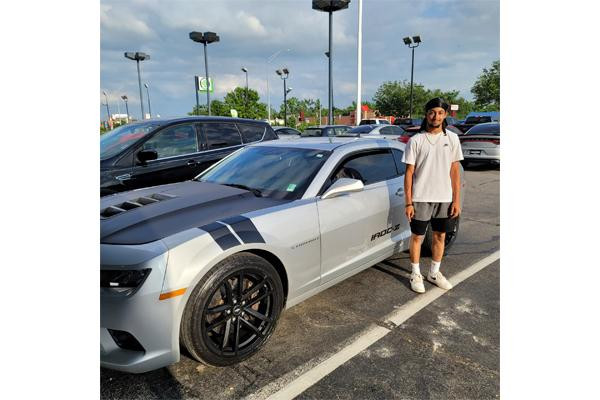 Orville Roper, 21, is a collision repair technician at Advanced Collision in Edmond. Here he stands in front of a 2014 Camaro SS that he refurbished.
Orville Roper, 21, is a collision repair technician at Advanced Collision in Edmond. Here he stands in front of a 2014 Camaro SS that he refurbished.
“Getting your credentials and employees seeing the paper when you graduate brings confidence,” Roper said. “The school gave me the skills and confidence to succeed in the working world as a collision technician.”
Growing up around cars, Roper always had an interest in the field because of his father’s background in painting and body work. His relationship with Short, which started as a student-teacher bond and grew into a mentorship and friendship, played a crucial role in his success.
“Jordan doesn’t even own a TV. He’s working on cars all the time. He’s working in his ‘dungeon.’ He’s rebuilding a car that he will take on a trip,” Roper shared.
Colby Wilder, 19, another recent graduate, also found success through the program. Influenced by TV shows and car builders, Wilder switched from automotive to collision repair and thrived under Short’s mentorship. He placed second in the SkillsUSA Oklahoma state competition in refinishing and now works at Tim’s Bodyworks in Guthrie as a collision apprentice.
“Meridian is a great experience. I learned a lot. Jordan knows a lot about auto body, and he made the experience so great,” Wilder said.
Wilder’s participation in SkillsUSA boosted his confidence and showcased his skills on a larger platform. The prizes he won, including a DA sander, buffing pad and paint respirator, are tools that will aid him in his career. Wilder aims to own his body shop, a dream that seems well within reach, given his passion and drive.
Looking Ahead: The Future of Collision Repair Education
The revitalized Collision Repair Technology program at Meridian Tech is a model for how community collaboration can address industry needs and prepare the next generation of technicians. Short continues to drive the program forward, ensuring it stays updated with emerging trends and technologies.
“I tell my students to be the first in line for training. Differentiate yourself from others,” Short said.
The program’s future looks bright as it continues to expand and adapt. Introducing new technologies, such as diagnostics and programming, ensures students are well-equipped for the modern demands of the collision repair industry. The program prepares students to be leaders in their fields.
The community’s ongoing support will be crucial to the program’s success as it grows and evolves. By fostering a strong network of employers, educators and students, the future of collision repair education at the Meridian Technology Center looks promising.
Stay tuned for part two of this story, in which Autobody News will look deeper into the role that body shop owners and the Oklahoma Auto Body Association played in the program’s impact.
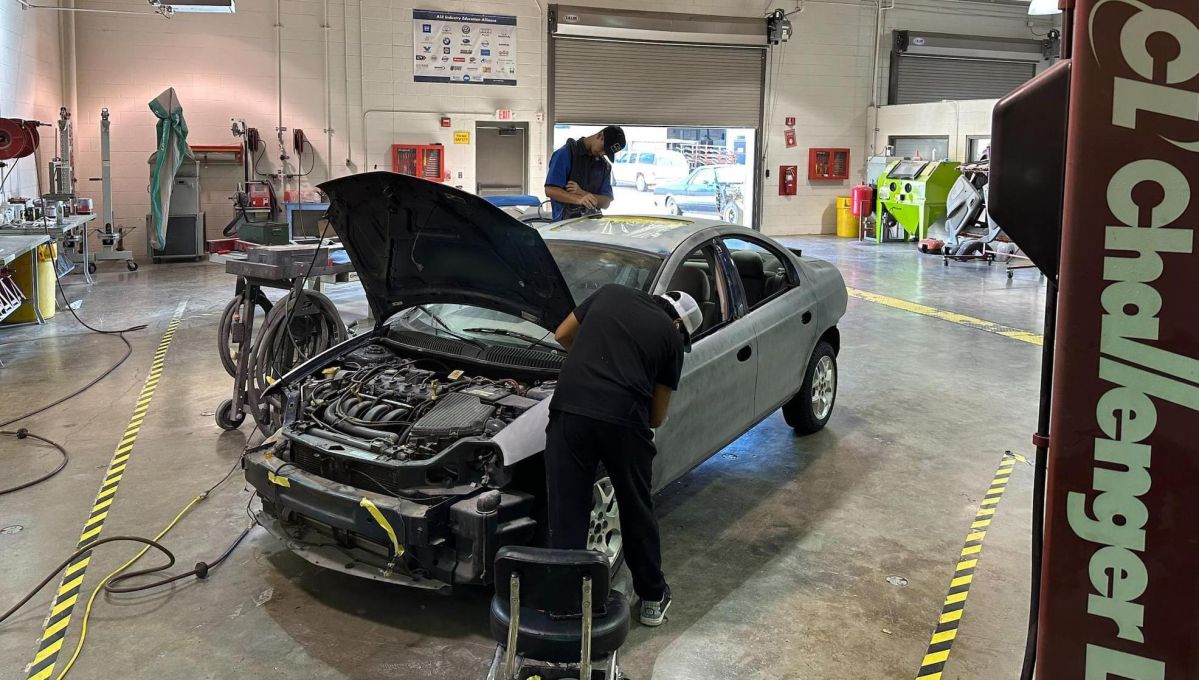

















Leona Scott